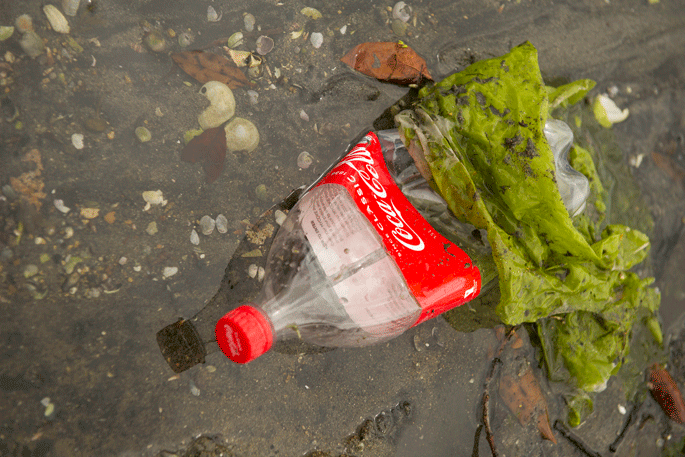There should be a new social norm called ‘plastic shaming' – that carrying and using plastic should become as objectively gross as blowing cigarette smoke in a baby's face.
'We should all be outraged,” says Dr Sommer Kapitan, a senior marketing lecturer at Auckland University of Technology.
She was reacting to a new scientific report by the Royal Society of New Zealand Te Aparangi, which throws alarming new light on our use of, and attitude to, plastic.
The report called ‘Plastics in the Environment: Te Ao Hurihuri – The changing world' states we throw away three quarters of the volume of plastics ever produced. And the equivalent of a garbage truck-load of plastic has been dumped into the ocean every 38 seconds over the past decade.
The authors of the report call for more consistent and clear labelling of plastics, more waste infrastructure to support recycling efforts and more innovative design to allow for greater recovery and use.
The new report was prepared by the Royal Society – an independent New Zealand body providing funding and policy advice in the fields of science and humanities.
Dr Kapitan says plastic use is becoming a moral issue, like cigarette smoking once was.
'Using plastics is an addictive, unavoidable part of our consumer landscape. Until our plastic dependency rises to the level of moral outrage that drives regulatory and social norm change, our fixation on the convenience of plastics will continue unabated.”
The problem is two-fold. Consumers say overwhelmingly they care about the environment. But when they buy, they are still driven by habit, convenience and the desire to look good.
'So first, we must tackle habits. The more our behaviors shift, even subtly, via regulation or social norm, the more habits change. That means that the government's bold step to regulate single-use plastic bags begins to shift our habits.
'Now we carry reusable bags or purchase sturdy plastic or fiber reusable bags at the shops. Then, we must raise the appeal of shunning plastic. We need reusable goods to be sexy. Social recognition is a subtle but pervasive force in this battle. Loyalty programmes for those who distain single-use plastic, earning discounts for every single-use container avoided, rewards for remembering non-single-use takeaway containers.”
'Many cafes already reward folks who bring reusable coffee cups and shops charge for takeaway containers. People proudly display metal and bamboo reusable straws at the office, in restaurants, in the park for picnics.
'Finally, these forces together should form a new social norm: plastic shaming.”
She says the moral disgust of being a plastic user should create a new category of renegades.
Instead of plastic shunners being the offbeat radicals with their reusable bags, bulk-bin containers, cotton netting fruit and vege bags, plastic addicts will be the new fringe, hoarding bags and takeaway containers like hermits.



2 comments
Too late
Posted on 20-08-2019 16:52 | By Kancho
My generation used paper , glass , greased paper. We didn't$45 dollar shop and ended up with twelve pieces of plastic. That was with fruit and veg not in any bag. Even hardware and small appliances etc are in plastic that requires quite an effort to cut into. Also only plastics 1 and 2 are recyclable, which is maybe half the plastic packaging. There is of course the plastic films , baking paper etc. disposable nappies , wet wipes jamming the sewers. Human kind is populating the planet faster than ever , soon double the population. Unlikely many of these consumers will stop consumption of plastic , electronics, batteries the list goes on. Human kind have been such a short time on earth. The earth will survive, mankind will not. Dinosaurs where here for millions of years, we will be less than one.
@Kancho
Posted on 21-08-2019 16:29 | By morepork
I share your concern and I'm sure many others do too. The difference between us and the dinosaurs is that we have opposable thumbs and better brains. We CAN do something about the plastic; the question is whether we will do anything. It is not impossible to use genetic engineering (create a microbe that eats plastic only in certain environments (like the ocean for instance), or nanotechnology that does something similar. But there are risks to all of these and a much better solution is to stop producing plastic and encourage people to see it as gross (as the report stated). We CAN live without it (did so for centuries) and we CAN solve the problems we create. But we are unlikely to be here as long as the dinosaurs; hopefully, we'll move elsewhere..If we don't destroy or pollute ourselves to death, first.
Leave a Comment
You must be logged in to make a comment.